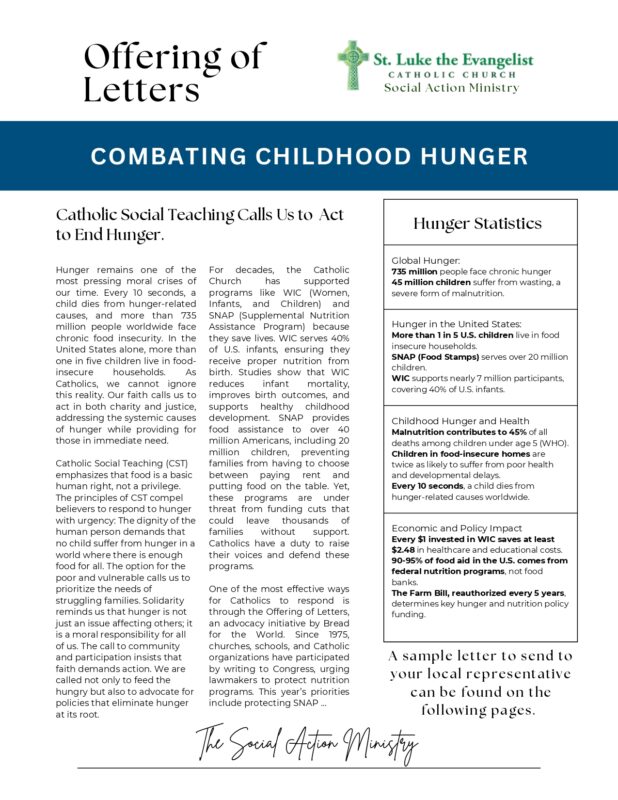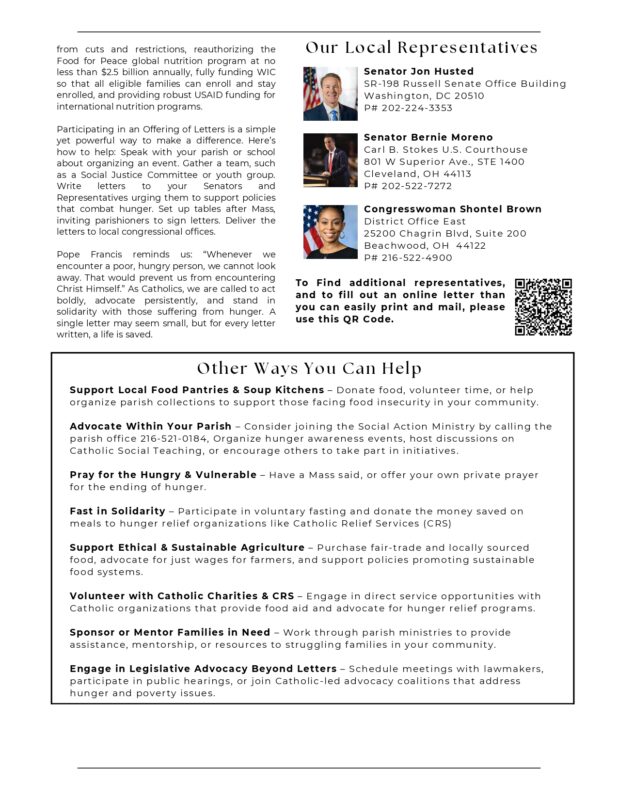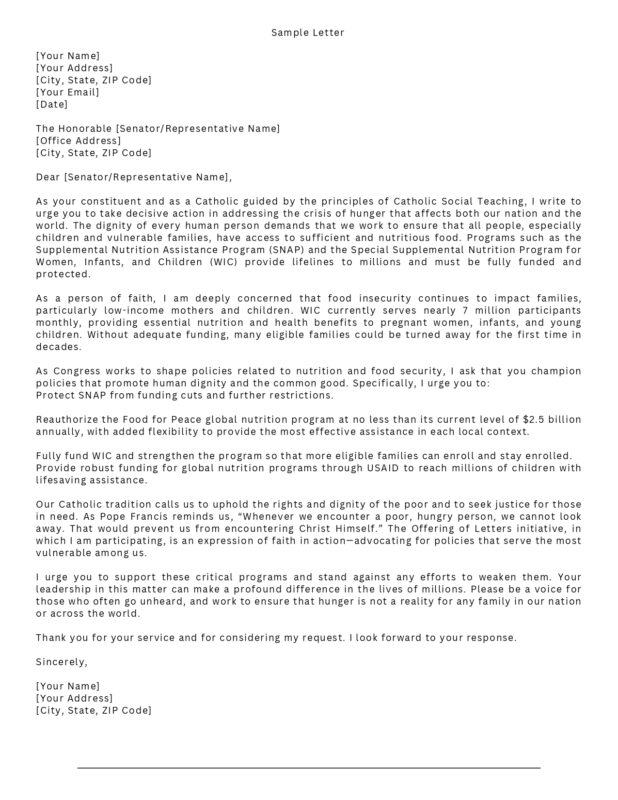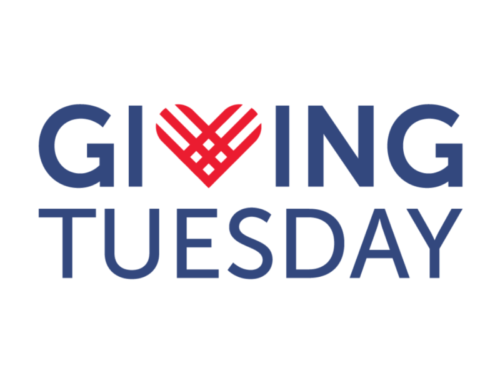Catholic Social Teaching Calls Us to Act to End Hunger.
Hunger remains one of the most pressing moral crises of our time. Every 10 seconds, a child dies from hunger-related causes, and more than 735 million people worldwide face chronic food insecurity. In the United States alone, more than one in five children live in food- insecure households. As Catholics, we cannot ignore this reality. Our faith calls us to act in both charity and justice, addressing the systemic causes of hunger while providing for those in immediate need.
Catholic Social Teaching (CST) emphasizes that food is a basic human right, not a privilege. The principles of CST compel believers to respond to hunger with urgency: The dignity of the human person demands that no child suffer from hunger in a world where there is enough food for all. The option for the poor and vulnerable calls us to prioritize the needs of struggling families. Solidarity reminds us that hunger is not just an issue affecting others; it is a moral responsibility for all of us. The call to community and participation insists that faith demands action. We are called not only to feed the hungry but also to advocate for policies that eliminate hunger at its root.
For decades, the Catholic Church has supported programs like WIC (Women, Infants, and Children) and SNAP (Supplemental Nutrition Assistance Program) because they save lives. WIC serves 40% of U.S. infants, ensuring they receive proper nutrition from birth. Studies show that WIC reduces infant mortality, improves birth outcomes, and supports healthy childhood development. SNAP provides food assistance to over 40 million Americans, including 20 million children, preventing families from having to choose between paying rent and putting food on the table. Yet, these programs are under threat from funding cuts that could leave thousands of families without support. Catholics have a duty to raise their voices and defend these programs.
One of the most effective ways for Catholics to respond is through the Offering of Letters, an advocacy initiative by Bread for the World. Since 1975, churches, schools, and Catholic organizations have participated by writing to Congress, urging lawmakers to protect nutrition programs. This year’s priorities include protecting SNAP from cuts and restrictions, reauthorizing the Food for Peace global nutrition program at no less than $2.5 billion annually, fully funding WIC so that all eligible families can enroll and stay enrolled, and providing robust USAID funding for international nutrition programs.
Participating in an Offering of Letters is a simple yet powerful way to make a difference. Here’s how to help: Speak with your parish or school about organizing an event. Gather a team, such as a Social Justice Committee or youth group. Write letters to your Senators and Representatives urging them to support policies that combat hunger. Set up tables after Mass, inviting parishioners to sign letters. Deliver the letters to local congressional offices.
Pope Francis reminds us: “Whenever we encounter a poor, hungry person, we cannot look away. That would prevent us from encountering Christ Himself.” As Catholics, we are called to act boldly, advocate persistently, and stand in solidarity with those suffering from hunger. A single letter may seem small, but for every letter written, a life is saved.
Read the full Offering of Letters with Hunger Statistics and ways to reach out.







